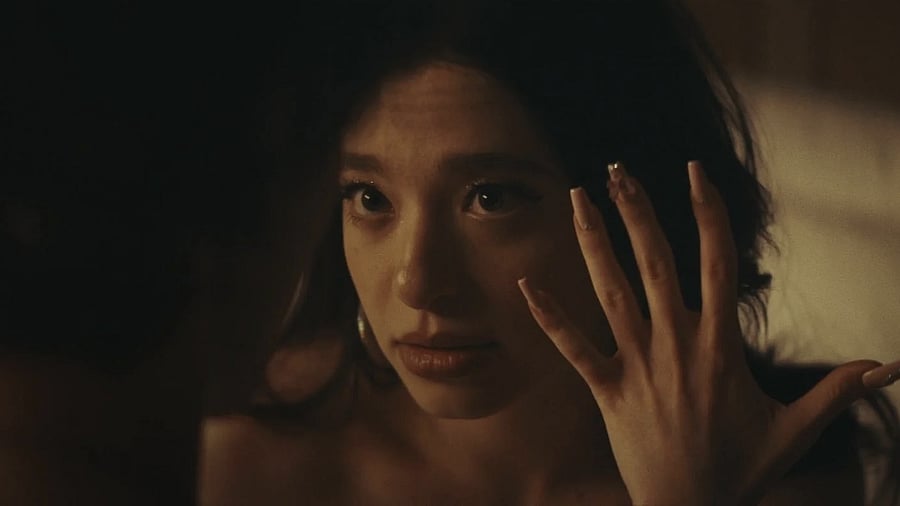
Looking at the winners of the Best Picture Oscar in the last five years, Sean Baker’s ‘Anora’ is really quite different. There is earnestness to ‘Oppenheimer’ (2023), ‘CODA’ (2021), ‘Nomadland’ (2022), and even ‘Parasite’ (2020) that seems absent in the lightweight and commercially oriented ‘Anora’. Sometimes a new film seems unusually novel only because it uses new ingredients although the formula it depends on is hackneyed.
‘Anora’ is one such film that has not only triumphed at Cannes but also swept the Oscars. Still, with some unpacking one realises that it could well be from the ‘Home Alone’ franchise, since it uses the same comedy formula. In that formula someone fragile and defenseless (like a child) is placed in a conflict with terrifying adversaries — criminals or thugs — but gets the better of them without harm to himself or herself. We laugh in relief at the terrifying monsters outdone rather than at anything comic; the monsters are at a disadvantage because the story has their defeat written into it. Instead of a little boy defeating burglars ‘Anora’ is about a fragile young stripper becoming a problem for a group of terrifying Russians who sigh in relief at being finally rid of her.
In the film Ani (Anora) an ‘exotic dancer’ from Brooklyn gets a young Russian client Ivan Zakharov whose father Nikolai Zakharov is an oligarch. After a week of stormy sex in Las Vegas, she accepts his proposal to marry. Their marriage comes to the notice of his family and Nikolai’s henchmen in New York are entrusted with the task of having the marriage annulled, this being the kind of thing they are accustomed to doing. A group of Russians therefore descend on the couple in the Brooklyn mansion; but Ivan flees promptly from Ani and them. The three Russians and the foul-mouthed Ani therefore spend much of the film searching for Ivan, Ani resisting violently and fully intending to remain married through thick and thin.
If ‘Anora’ had not stuck only to an energetic protagonist it could have been more nuanced. Russian oligarchs and their henchmen have been portrayed widely, and one cannot be confronted by them without some dread attached to it. For instance, the depiction of Russians as vulnerable in the film is seen in the West (largely the liberal press) as Russian propaganda, which itself can be understood as owing to media portrayals of Russia and Russians. But Ani responds as though she has nothing to fear; she is married to their employer’s son but since Ivan has been in such scrapes before they must have become accustomed to brutal tactics. In any case the narrative is not played out like a real life situation unfolding but as an amusing story enacted by people conscious that they are all part-players in a comedy.
If one looks at the detail about Russia and the US packed into the film, there is certainly political discourse about the respective societies. Ani is of Russian origin and is picked by Ivan because she speaks the language. Her uninhibited use of expletives regardless of the situation (including the courtroom) is a token of the free speech allowed in the US. At the climax, after her marriage has been annulled, Igor, one of Nikolai’s henchmen, remarks that Ivan owes her an apology and Ivan’s mother immediately disallows it; the others try to make excuses for Igor’s remark, that he is tired. The film is saying something about migrants from Russia enjoying more freedom in the US. Igor has been in the US and has hence learned conduct that is not Russian. Then there is a sense in the film of New York having a large number of hot spots where migrants from Russia gather, which suggests large-scale migration of Russians to the US. Nikolai himself arrives in the US in his own airplane a day after news of Ivan’s marriage reaches him. One wonders if in the present political scenario it would be that easy to enter the US.
The film has a considerable amount of sex that has seen critics responding with alarm to it winning so many awards. The sex on show cannot be called ‘titillation’ given that it is repetitive and quite boring but the strip clubs presented here are very different from their representation as sleazy in American TV shows, like those dealing with crime. Here again, something that has elicited horror in other contexts — women from Eastern Europe being involved in sex trafficking and kept in bondage — is given an upbeat slant as representing the freedom to take up whatever occupation one desires, even if ‘socially unconventional’. Ani being called a ‘hooker’ or ‘prostitute’ is violently taken exception to by her to underscore her freedom of choice. The kind of life portrayed is less in need of change than the terms it is known by.
To conclude, one wonders if the present geopolitical scenario played a part in ‘Anora’’s success in the West. Given the turn that the Ukraine war has been taking, contrary to previous expectations, the film has the appearance of a peace offering from the other side and emphasises the acceptability of all kinds of Russians. It is not an accident that it is the liberal side that is against the film because the Ukraine War was its doing.
(The author is a well-known film critic)